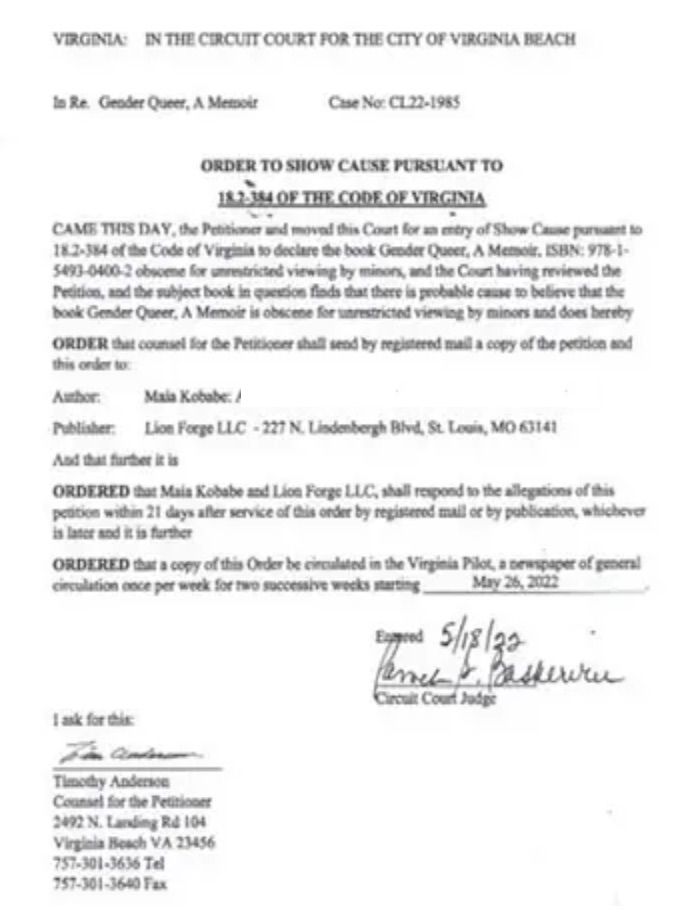Anderson claims that Kobabe’s work is damaging under the state’s obscenity laws. He suggests: Unfortunately for Anderson, he’s conveniently left out section H of the Virginia obscenity laws, which reads as follows: As indicated before, obscenity laws demand examining a work in relation to its whole. Gender Queer is a book published for adult audiences, and the small excerpts making the rounds on social media featuring sex are age-appropriate and not representative of the whole of the book.
- The artistic, literary, medical, scientific, cultural and educational values, if any, of the book considered as a whole;
- The degree of public acceptance of the book, or books of similar character, within the county or city in which the proceeding is brought;
- The intent of the author and publisher of the book;
- The reputation of the author and publisher;
- The advertising, promotion, and other circumstances relating to the sale of the book;
- The nature of classes of persons, including scholars, scientists, and physicians, for whom the book may not have prurient appeal, and who may be subject to exception pursuant to subsection G. Lawyers on behalf of Oni Press indicate that Anderson’s lawsuit is unfounded, stating that ” Petitioner here attempts to redefine Code §18.2-384 to have book declared obscene as it relates to one subset of the Community: minors in the Hampton Roads and Virginia Beach areas.” This is a developing story. The outcome of Anderson’s lawsuit against Barnes & Noble is pending, though lawyers are clear in Gender Queer and A Court of Mist and Fury–the other book being challenged in this suit–do not fall under obscene materials in any definition of the law.
